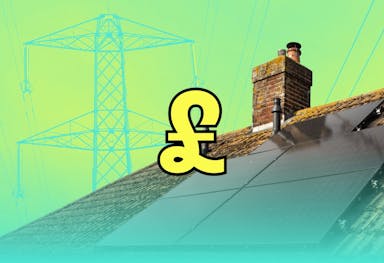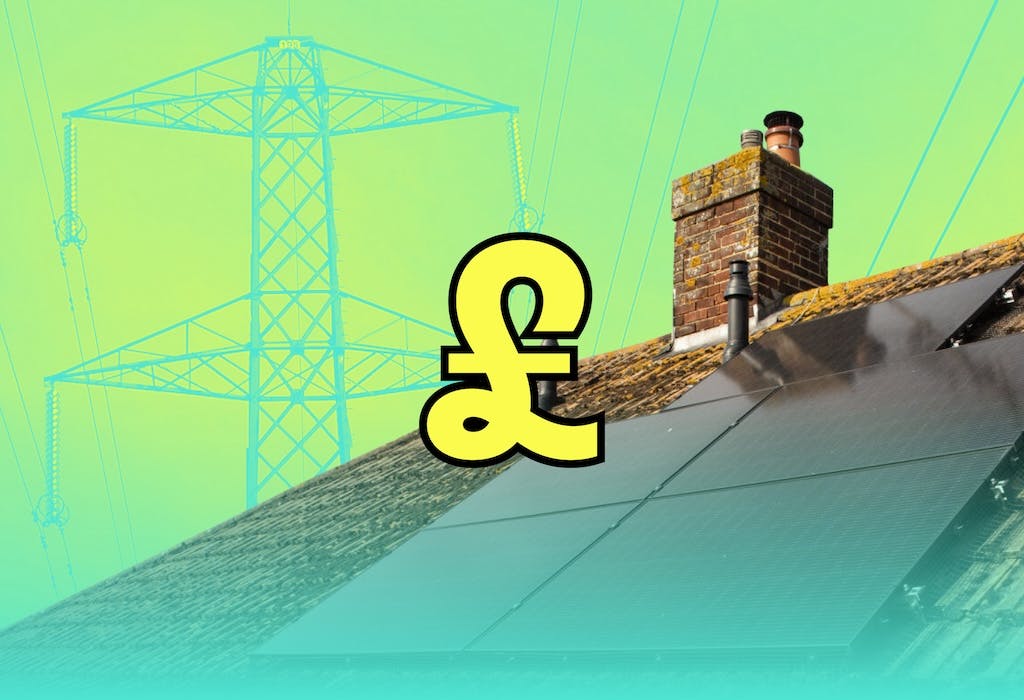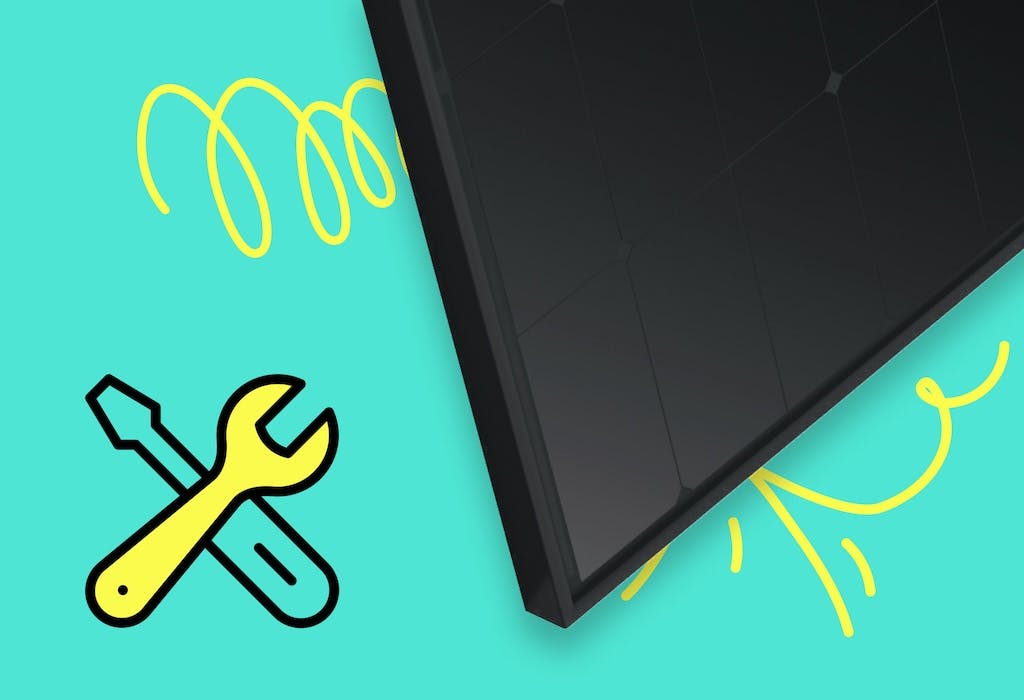- Solar advice hub
- Installation
- The MCS certificate for solar panels: an expert guide
The MCS certificate for solar panels: an expert guide
Here's why the Microgeneration Certification Scheme is one of the best ways to guarantee your solar installation's quality.


Why you can trust our content
We know that the solar industry is full of misinformation, but we only use reliable sources, including:
- Our experienced solar experts, installers and system designers
- Our own database of solar & battery system designs
- Authoritative bodies like MCS and the UK government



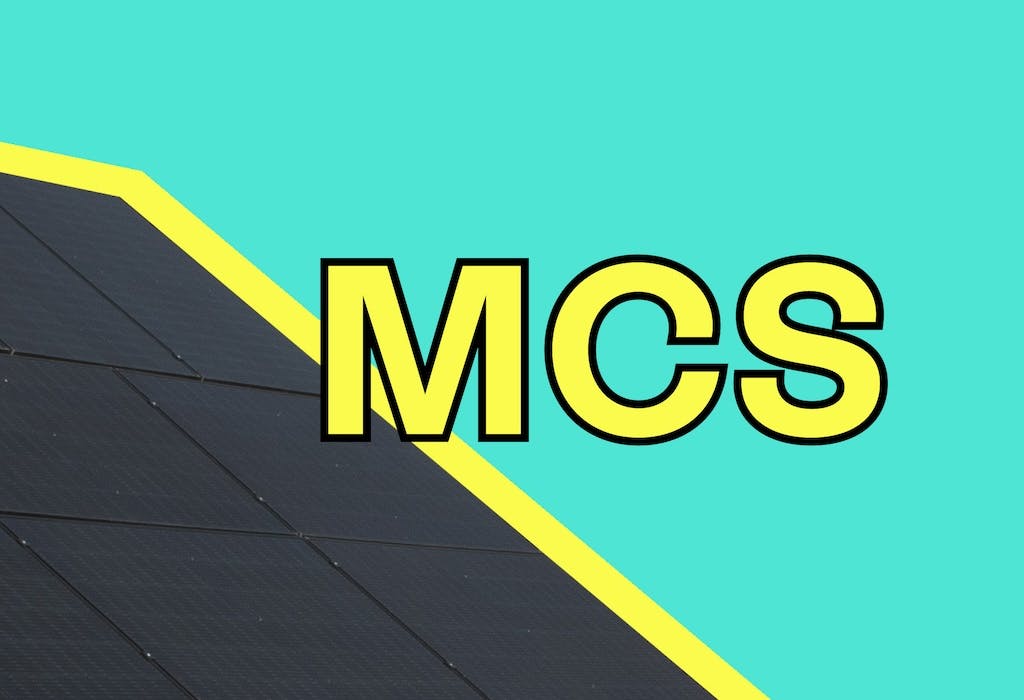
Calculate savings
What kind of home do you live in?
Calculate savings
What kind of home do you live in?
The MCS certificate: at a glance
The world of solar panels is awash with technical terms and acronyms, and one you’ll come across a lot is MCS, or the Microgeneration Certification Scheme.
While lots of solar panel jargon is not essential for you to know before you get a solar & battery system, it’s definitely worth knowing a bit about the MCS - particularly when it comes to choosing a reliable solar company.
Along with Flexi-Orb, it's one of the two top certification schemes for solar installers and products.
To find out how much a certified solar & battery installation could save you on your energy bills, answer a few quick questions below and we'll provide you with an estimate.
Find out how much you can save
What kind of home do you live in?
What is the MCS certificate for solar panels?
The Microgeneration Certification Scheme (MCS) is a government-backed UK initiative that was set up in 2007 to make sure small-scale renewable energy installations, like solar panels and heat pumps, meet universal quality standards.
This came at a very important time for the solar panel industry in the UK, as it wasn’t long before the Feed-in Tariff suddenly fired up demand for solar across the nation. And given the fairly high upfront cost of solar panels, it makes sense that solar installations need to meet a certain level of quality.
There are MCS certifications available for solar panels and installers, which when combined should mean your installation goes smoothly. You should also look for products and specialists with a Flexi-Orb certification, which will ensure the same high standards.
Why is the MCS certificate important?
It's vital that your solar panel system and installer have an MCS or Flexi-Orb certificate, as this is the only way to make sure they'll work to the high standard you deserve.
If an installer has one of these certifications, it means they’ve met a whole host of rigorous requirements, ranging from technical skills (under the MCS 001 and Solar PV-specific Standards) to their competency in running a reputable business.
Either certificate is a seal of approval that shows consumers that a product a) is safe, b) will work as it should, and c) is built to last.
Like Flexi-Orb, MCS has created Product Standards that include a lengthy list of testing and performance criteria, checks panels have regulatory safety marks, and ensures manufacturers carry out regular audits.
When speaking to solar panel installers, be sure to ask them if they're certified by MCS or Flexi-Orb - along with these six other important questions.
What are the benefits of having an MCS certificate?
If your domestic solar & battery installation has an MCS certificate, it means you’ll experience the following advantages:
- Access to most smart export tariffs, potentially worth around £343 per year*
- Fewer malfunctions and issues with your system
- Higher output due to efficient, quality hardware, leading to more savings
- Increased property value through professional installation
*Based on a home using 3,400kWh of electricity per year (which is the UK average) with solar irradiance of 850kWh/kWp, a 4.6kWp solar PV system, and a 5.2kWh battery. The home is signed up to Good Energy's Solar Savings tariff for export, Good Energy EV Charge for import, and exports 65% of its solar electricity.

The UK's first solar subscription
- No upfront cost
- Fixed monthly fee
- 20-year Sunsave Guarantee
Is it mandatory for your solar panels to have an MCS certificate?
It's not strictly mandatory for your solar panels to come with MCS or Flexi-Orb certification, but it's highly recommended, especially if you want to take advantage of certain financial incentives.
Having an MCS or Flexi-Orb certificate opens doors to export tariff schemes like the Smart Export Guarantee (SEG), which allows you to get paid for sending surplus electricity to the grid.
Export tariffs tend to have strict requirements, one of which is MCS or Flexi-Orb certification.
Suppliers may eventually relax this rule to include other certifications, but they will always want to ensure your installation was fitted to a high standard before signing a contract.
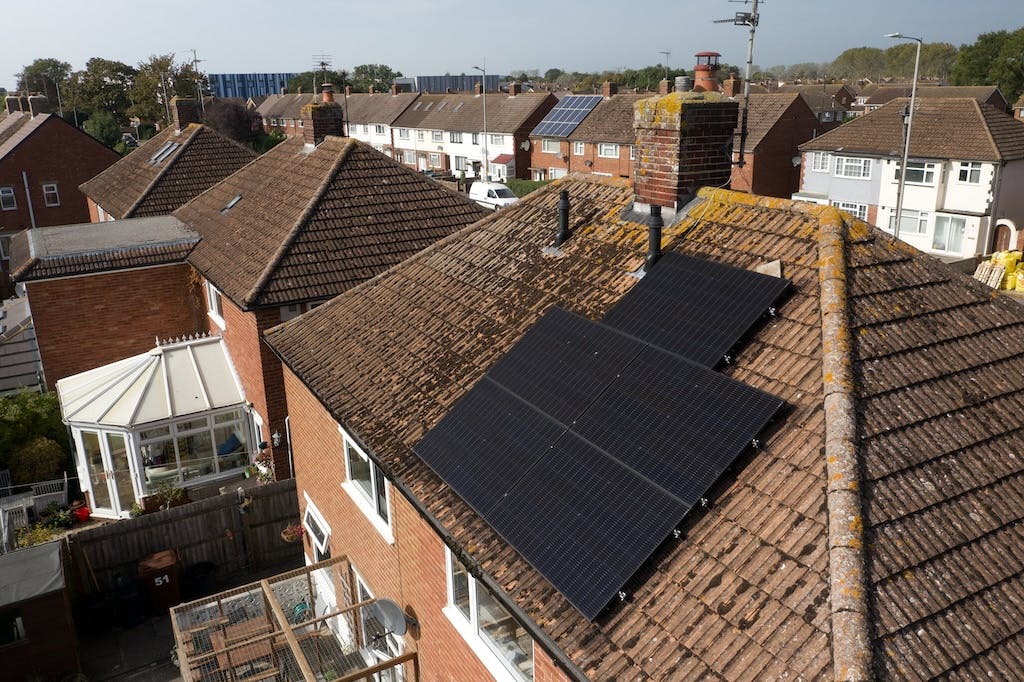
How can you verify that your solar installer is MCS certified?
Checking if your solar installer is MCS certified is pretty straightforward. The MCS website has a handy database where you can search for certified installers by their name and location – just pop in their details and the site will confirm if they're registered, as well as their unique Certification Number.
How do you get your MCS certificate for your solar panels?
Your installer usually takes care of getting an MCS certificate for your solar panels during the installation. But to be eligible for an MCS certificate, your solar panel installation must first:
- Be commissioned by an MCS-certified installer
- Use MCS-certified products
- Have a commissioning date after 15 July 2009
Your installer should issue your MCS certificate within 10 working days of wrapping things up. A good solar panel installer will give you an MCS certificate automatically – but it's always a good idea to double-check at the beginning.
There are only two situations where you can get a copy of your certificate directly from MCS: if the installer isn’t MCS certified anymore or they stop trading. In these cases, you’ll need to pay an administration fee and provide proof of ownership for your solar panel system – if not, you’ll have to go back to your installer to ask for your certificate.
If you decide to cut costs and buy used solar panels, you'll have to install the panels yourself (which we do not recommend, due to safety risks) and you won't be able to get your system certified by MCS or Flexi-Orb.
Is the MCS certificate easy for installers to get?
You’ll be glad to know that getting an MCS certificate isn't a simple tick-box exercise for solar panel installers – it requires them to meet a set of strict standards. Here's a brief breakdown of what’s needed:
- Getting assessed: Installers need to know and show they understand both parts of the MCS 001 Standard and the technical standards for solar PV technology.
- Competency criteria: The installation company needs to prove they have skilled employees who meet the MCS 025 Standard. This involves identifying a Nominated Technical Person (NTP) who has completed an MCS approved training course for solar PV technology.
- Processes and procedures: Installers should have evidence of an appropriate Quality Management System (QMS) in place to handle installation quality.
- Consumer Code membership: Installers have to join a Consumer Code approved by the Chartered Trading Standards Institute (CTSI), like the Renewable Energy Consumer Code (RECC) or the Home Insulation & Energy Systems Quality Assured Contractors Scheme (HIES).
- Applying to a Certification Body: Finally, installers apply to a Certification Body to assess and inspect their company practices.
As you can see, the MCS certification process for installers is thorough. An MCS-certified installer has to be dedicated and put in effort for each step to maintain a high standard.
Can I trust installers who don't have an MCS certificate?
Installers without an MCS certificate are still well worth using if they have a Flexi-Orb certificate instead.
In fact, a Flexi-Orb certification actually indicates a higher level of quality in many ways.
For instance, Flexi-Orb’s Installation Scheme has stricter requirements, meaning it requires much more effort from installers to get certified.
This continues after the assessment as well, as Flexi-Orb’s certification bodies keep evaluating installers once they’ve been certified, to ensure they maintain their standards.
Customers are also protected by an insurance-backed guarantee, plus they can leave reviews that will be available to all customers looking for a renewable installation.
But if an installer hasn't been certified by MCS or Flexi-Orb, they're not worth hiring.
Some of these installers will still produce high-quality work, but the risk is too large for any homeowner to take.
You also wouldn't be eligible for an export tariff, which could cost you hundreds of pounds per year.
What are the risks of not using an MCS-certified installer?
The risks of not using an installer who's been certified by MCS or Flexi-Orb include:
- Not being eligible for financial perks like an export tariff
- The potential risk of poor installation or subpar product quality, which would affect efficiency, output, and savings
- Manufacturer warranties might require installation by certified professionals
- Shoddy work may affect your property's market appeal and value
How many solar installers are MCS certified?
As of January 2024, the MCS has certified more than 3,300 solar installers – with 1,300 of these certified in 2023 alone, marking a 65% increase from the previous year.
What other solar accreditations are important?
In the UK, there are a few other crucial solar accreditations and membership associations for installers, apart from the MCS and Flexi-Orb. These include:
- Renewable Energy Consumer Code (RECC)
- The Renewable Energy Assurance Limited (REAL) scheme
- National Inspection Council for Electrical Installation Contracting (NICEIC)
- National Association of Professional Inspectors (NAPIT)
- Home Insulation and Energy Systems Quality Assured Contractors Scheme (HIES)
These accreditations help ensure that installers are qualified, follow best practices, and provide work with certain levels of guarantee or warranty.
To learn more, check out the guide to Sunsave's accreditations.
Summary
If you're considering installing solar panels on your home or business, hiring an installer who's been certified by MCS or Flexi-Orb is an important step to ensuring the quality and safety of your system.
To find out how much a certified solar & battery system could save you on your energy bills, provide us with a few quick details below and we'll get back to you with an estimate.
Find out how much you can save
What kind of home do you live in?
MCS certificate for solar: FAQs
Related articles

Written byMelody Abeni
Based in London, Melody is a specialist green technology writer who has been covering sustainability, climate action and ESG for the past five years, after gathering operational experience in green investing and financial services. She has written for various industry publications, including renewable technology advisor The Eco Experts, and she holds a Master’s degree in law from Birkbeck University.


